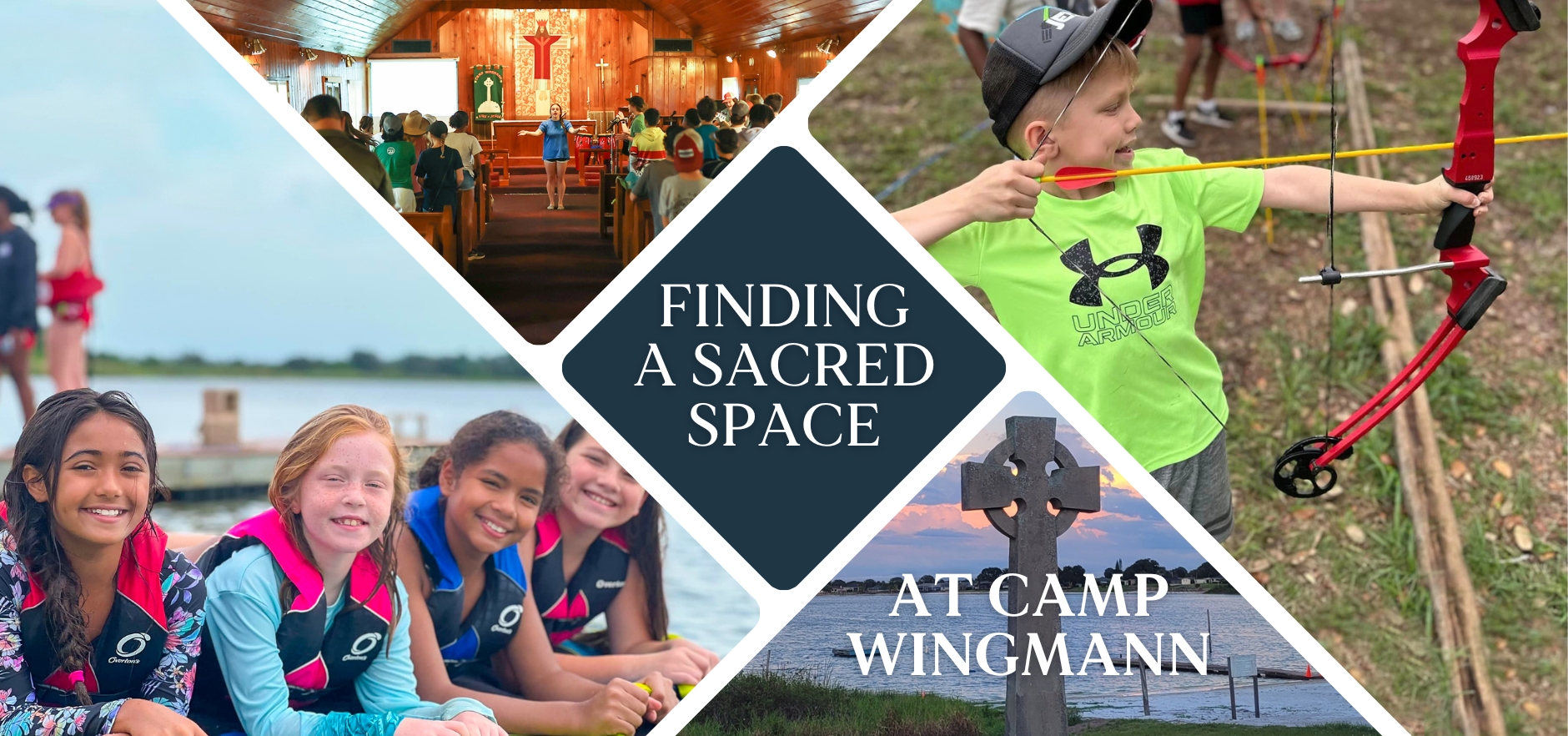Sacred space – a place in our lives that we set apart as holy – is essential to spiritual growth. This may be particularly so when it comes to children and youth. For many of them in the Diocese of Central Florida, Camp Wingmann is one of those places. A sacred space for many years, the camp remains so today. From the older generations who keep its heartbeat alive, to the young adults who come to sow into the campers, to the children and youth who spend a week or two of their summer there, the stories of life change never cease.
During morning chapel one day during the St. Barnabas (middle-school aged campers) week this summer, the Rev. Bill Yates challenged the students to be present and watch for God moving in their lives while at Camp Wingmann, where Yates himself was a camper in the 1960s. Today, he serves as camp vicar after working to revive the operation and serving as its longtime director once the diocese repurchased the facility in the late 1990s.
Yates shared the story of Jacob in Genesis 28, when he encountered the Lord and then set up an altar, saying, “Surely the Lord is in this place” (v. 16b). He encouraged the youth to take in everything Camp Wingmann has to offer and to pay attention to where God might move among them while there. As they see and experience God, he told them, they must work to remember those experiences, just as Jacob did.
Like Yates, the camp counselors and other leaders continue to show up to pour into these young people’s lives because of their own special experiences. Bennett Clark is a camper turned counselor now considering a possible call to work in children’s ministry beyond summer camp. Clark remembers how, as a troubled youth who didn’t want to go to Camp Wingmann to begin with, the camp became a place of healing for him.
“Camp has always been a really special place for me,” he said, adding, “It’s crazy how much that camp means to me, how many times Jesus called me from the brink of destruction.”
Today, not only is Clark returning the favor by pouring into other youth, but he’s also engaged to a young woman he met at camp, where she now also serves as a counselor. The two are planning to hold their wedding at Camp Wingmann, giving even more meaning to its status as a sacred space.
And then there’s the story of Jeremy (name changed for privacy), a middle school camper. The summer camp theme was “Upended,” with lessons and discussions centered on how a God-focused life turns the world’s ways upside down. This starts with how we lay down our lives and choose to live for the Lord. The main lesson for one day worked through the Baptismal Covenant (Book of Common Prayer, p. 304), laying out exactly what it means to be a Christian.
Later that evening during nighttime devotions back in their cabins, Clark opened The Action Bible, which he describes as “a comic book version of the Bible that is really handy for helping younger guys understand who Jesus really was.” He and his group took a look at the story of John the Baptist baptizing Jesus. During that time, Clark explained, “Jeremy said that he wasn’t baptized and that he really wanted to.”
This sacred-space moment was important not only for Jeremy, but also for the entire group of campers, who joined in celebrating their friend’s decision. “We all kind of went nuts after that!” Clark said.
If you ever have the opportunity to spend time with Yates, you’ll likely hear stories of the many people over the decades who have come through Camp Wingmann. For him, every scribble in the rafters holds the memory of someone whose life was impacted by the God-experiences they had at camp.
And if you spend time with the young people who stayed at Camp Wingmann this summer, it won’t take long to recognize that those experiences continue today. Sacred spaces such as this will continue to influence lives in our diocese for generations to come.

